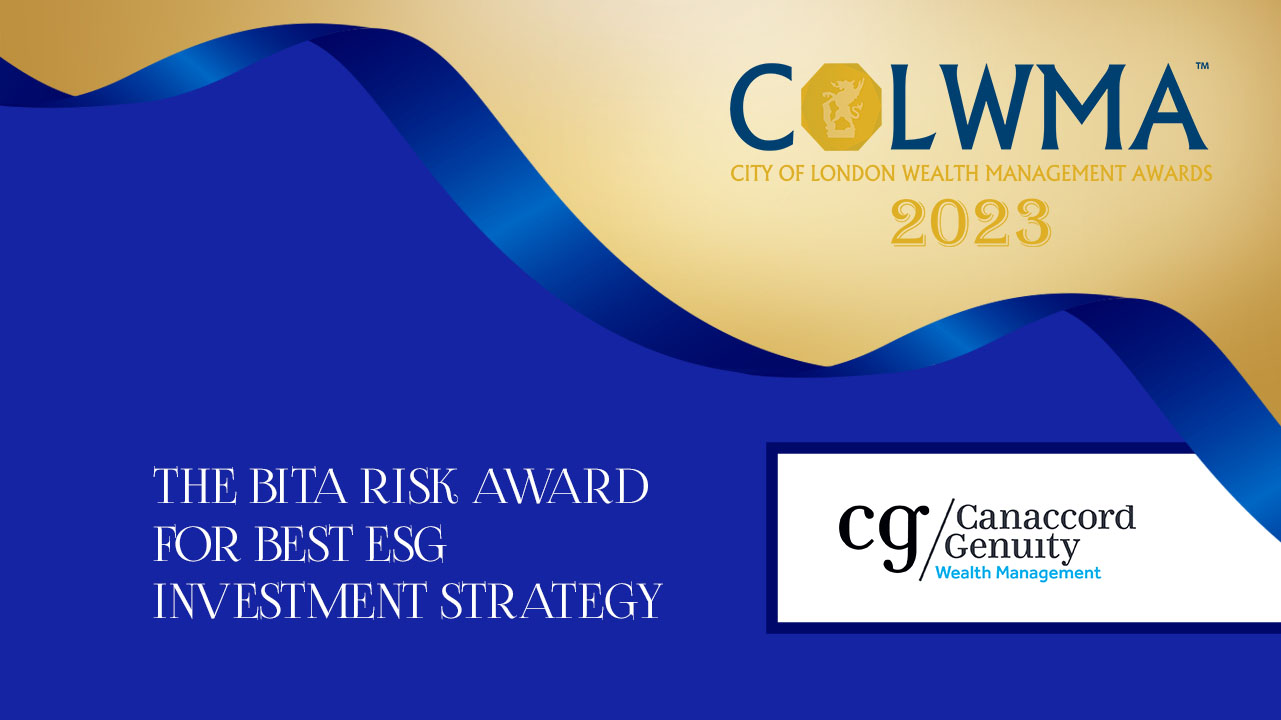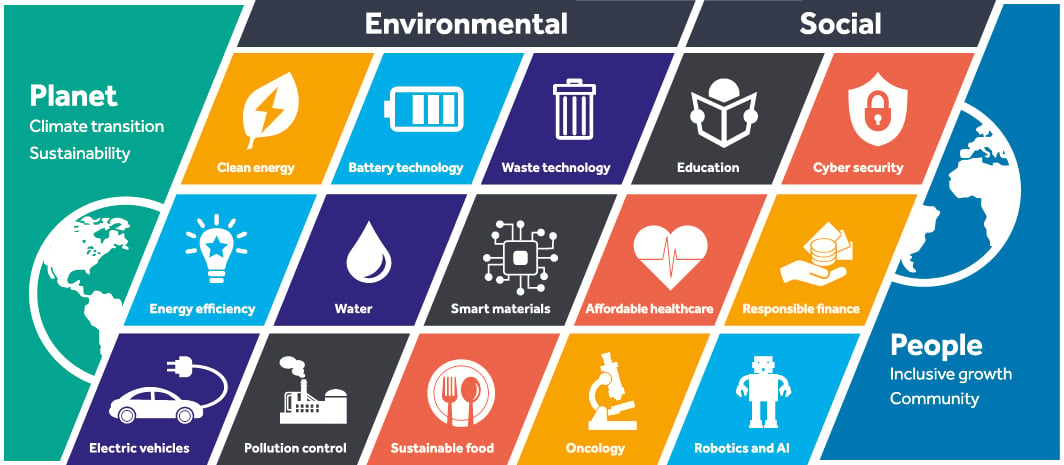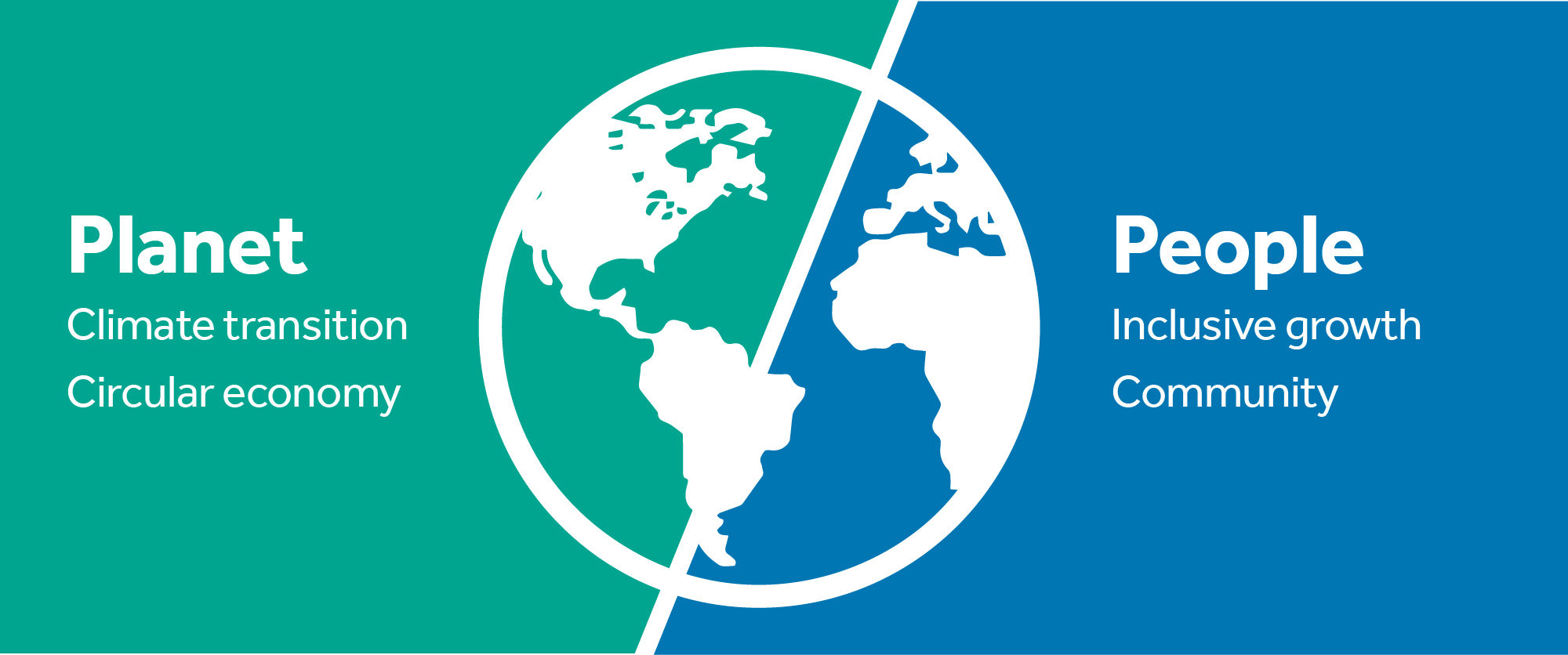- Home
- Investment management
- ESG portfolio service
Our ESG portfolio service - enabling you to make a difference
Our ESG portfolios are designed to:
- Aim to deliver consistent, inflation-adjusted real returns
- Give you access to our global investment ideas and research
- Offer you flexibility so you can choose the parameters of your ESG portfolio to suit your needs and preferences
- Be supported and protected by our robust and disciplined investment process
- Be managed by an accessible and dedicated CGWM team.
Interested in our ESG Portfolio Service?
Book a free consultation with an ESG investment manager.
Request a consultationCanaccord Genuity Wealth Management was one of the first top 10 independent UK wealth managers to offer an ESG Portfolio Service that allows you to align your investments more closely with your own values. You will be investing not only for your own future, but for the future of the environment and society.
How our ESG Portfolio Service works for you
All of our ESG (environmental, social and governance) portfolios allow you to take a responsible approach to investing without sacrificing performance. They allow you to invest in funds that work towards making the world a better place, while also doing your best for your long-term financial security.
We offer ESG portfolios with different levels of risk to suit each investor’s situation. You simply choose the one that’s right for you and we manage it on your behalf, so you don’t have to. Your Investment Manager will help you choose which of our five portfolios best meets your objectives and attitude to investment risk.
All our portfolios are designed to work over a typical investment cycle of seven to ten years, so we recommend you stay invested for at least seven years.
Whichever portfolio you choose, your investments will benefit from the best of our thinking and long-term investment management experience. We will monitor and manage your portfolio to ensure your investment risk is kept at a level that suits you through true diversification.
How we create our ESG Portfolio Service
Our award winning ESG Portfolio Service offers you impact investing with a thematic approach.
We choose our themes by thinking about the impact they will have on both planet and people, ensuring a holistic and well-rounded approach that brings exciting investment opportunities.
COLWMA Best ESG Investment Strategy 2023

Defaqto 2023 ESG Reviewed

Defaqto has specifically included the ESG Portfolio Service in this five star rating.
Impact investing means:
- Choosing companies that we believe will have a demonstrable impact for good on the planet and the people within it
- Engaging in positive inclusion, which naturally excludes exposure to undesired sectors
- Investing where we see the potential for a positive contribution.
Our thematic approach
Identifying specific sustainable themes allows for a more specialised investment approach which enables us to pay attention to all opportunities associated with an identified, investible theme.
Our ESG themes (detailed below) span multiple regions, sectors, and business ecosystems. Looking for consistent exposure to a particular theme ensures the portfolio is focused on high growth and long-term economic value creation.

Why invest in ESG funds?
Importantly, we also look for funds that have a long and successful track record of outperforming their competitors. We aim to achieve your dual objective: generating performance while benefiting society.
Take the responsible approach to investing.
Arrange a no-obligation, complimentary consultation.
Request a consultationInvestment involves risk. The value of investments and the income from them can go down as well as up and investors may not get back the amount originally invested. Past performance is not a reliable indicator of future performance.
Our portfolios are designed to work over a typical investment cycle of seven to ten years, so we recommend you stay invested for at least seven years.
The information provided is not to be treated as specific advice. It has no regard for the specific investment objectives, financial situation or needs of any specific person or entity.
- Patrick Thomas, Head of ESG Investing
- Mike Myers, Investment Director
- Justin Oliver, Chief Investment Officer, Canaccord Genuity Funds
- Kamal Warriach, Head of Equity Fund Research
- Jason Robilliard, Head of Portfolio Management, Guernsey
- Nick Maunder, Investment Analyst
Meet our ESG investment experts
If you would like to know more about our ESG Portfolio Service, please get in touch. We will be delighted to give you more details.
Investment involves risk and you may not get back what you invest. It’s not suitable for everyone.
Investment involves risk and is not suitable for everyone.



